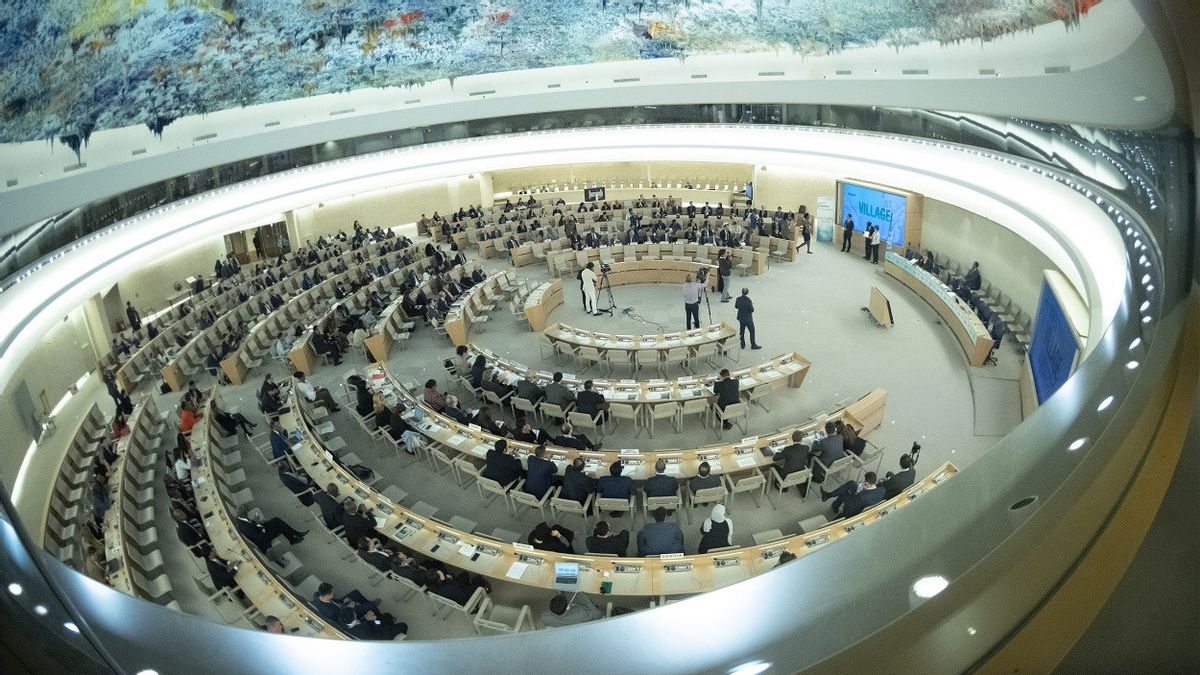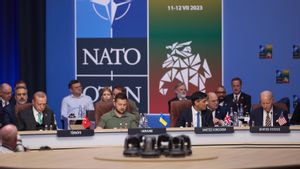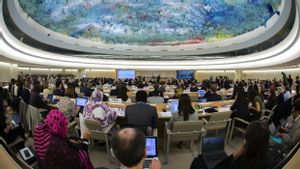JAKARTA - Saudi Arabia welcomes the ratification of the United Nations Human Rights Council (UN) for a resolution condemning hatred of religion, following the recent burning of the Qur'an in public drew criticism from various parties, including from prominent Muslim countries.
The resolution "Against Blasphemy of Religion which is a Hasutan for Discrimination, Enmity or Violence," was adopted after receiving 28 votes agreeing, 12 against and seven abstained, according to the council's website.
The resolution proposed by Pakistan on behalf of the 57-member Islamic Cooperation Organization (OIC), called on the head of UN human rights to publish a report on religious hatred and for countries to review their laws, closing gaps that could "obstruct the prevention and prosecution of acts and advocacy of religious hatred."
" Adopting this resolution after continuous demands from the Kingdom and many countries around the world, realizing the principles of respect for religion and culture and strengthening human values guaranteed by international law," the Saudi Arabian Foreign Ministry said in a statement. July 13th.
The resolution comes after an Iraqi immigrant in Sweden burned the Qur'an outside a mosque in Stockholm last month, sparking outrage around the Muslim world and demands from Muslim countries to act.
Saudi Arabia, according to the statement, will continue efforts that promote dialogue and tolerance while rejecting all actions that seek to spread hatred and extremism.
🔴BREAKINGThe @UN🇺🇳 Human Rights Council adopted draft resolution L.23 (as orally revised) entitled "Countering religious hatred constituting incitement to discrimination, hostility or violence."Full results of the vote at #HRC53⤵ pic.twitter.com/RqQM7m1dBP
— United Nations Human Rights Council 📍 #HRC53 (@UN_HRC) July 12, 2023
BREAKINGThe @UNLIH Human Rights Council added draft resolution L.23 (as orally represented) ENTITLED "Countering religious eating institution to discrimination, hostility or violence."Full results of the vote at #HRC53 pic.twitter.com/RqQM7m1mBP
Meanwhile, UN Human Rights Chief Volker Turk highlighted the limit between freedom of expression and respect for religious beliefs.
He called for respect for "all people", including migrants and those wearing headscarves.
He said the recent burning of the Qur'an appeared to be a fabricated demonstration of intolerance to "match against sheep" among humans.
"(The Al-Qur'an fire) appears to have been created to express insults and inflame anger, to drive divisions among people and provoke to turn different perspectives into hatred and possibly violence," Turk said, as quoted by The National News.
Turk melanjutkan, masyarakat harus menunjukkan rasa hormat kepada " semua orang" dan menegaskan "advokasi kebencian yang merupakan inciten untuk melakukan kekerasan, diskriminasi, dan perusahan harus dilarang di setiap negara".
Turk also said hate speech in various forms was increasing, even when the speech was not always considered inciting violence.
"Shortifying women's dignity and denying their equality with men; harassing Muslim women and girls who wear headscarves verbally; ridicule people with disabilities; making false claims that migrants or people from certain ethnicities are more likely to be involved in crimes, all hate speech is similar in this case because it comes from the basic assumption that some people are less worthy of respect as humans," he explained.
VOIR éGALEMENT:
During the debate, some Western countries condemned intolerance but emphasized the right to freedom of expression. On the other hand, some countries whose majority of population is Muslim want the government to do more to prohibit expressions of religious intolerance that could lead to violence.
"We want to emphasize that freedom of expression is an ethical value that should spread to coexist peacefully, not cause a conflict of civilization," said Saudi Arabian Foreign Minister Prince Faisal bin Farhan,
"We must spread the values of tolerance," he said.
The English, Chinese, Japanese, Arabic, and French versions are automatically generated by the AI. So there may still be inaccuracies in translating, please always see Indonesian as our main language. (system supported by DigitalSiber.id)


















